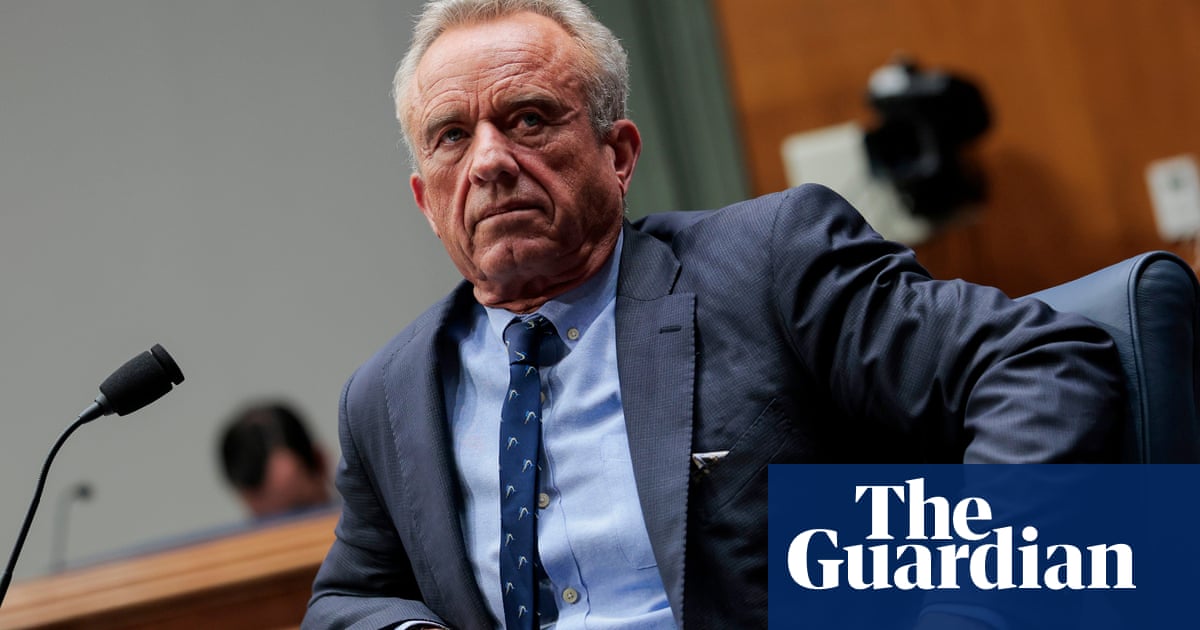Robert F Kennedy’s “clean sweep” of a critical vaccine advisory panel spread shock and dismay among health experts, as many warned the health secretary’s decision would erode trust in the US vaccine approval system.
The secretaryfired all 17 membersof the Center for Disease Control and Prevention’s (CDC) advisory committee for immunization practices (ACIP) – a group of scientific experts who recommend how vaccines should be administered and distributed.
“Some would try to explain this away by blaming misinformation or antiscience attitudes,” Kennedy wrote in an opinion piece in theWall Street Journal, announcing the change, on Monday.
“To do so, however, ignores a history of conflicts of interest, persecution of dissidents, a lack of curiosity, and skewed science that has plagued the vaccine regulatory apparatus for decades.”
The immediate concern for public health officials, scientists and vaccine researchers was both the erosion in trust and who will fill the newly opened seats. Candidates for the voluntary roles often go through months of vetting, but it appears the new candidates may have already been chosen. A press release from the Department ofHealthand Human Services (HHS), which Kennedy leads, said ACIP’s upcoming June meeting would go forward as planned.
Dr Tom Frieden, president and CEO of the public health non-profit Resolve to Save Lives and a former CDC director,saidin a statement on X that Kennedy’s decision to remove the “seventeen dedicated doctors, pediatricians, scientists, and parents who served on [ACIP]” is “a dangerous and unprecedented action that makes our families less safe”.
“ACIP has long been a model for the world of transparent, fact-based guidance with rigorous reviews of vaccine safety and effectiveness,” Frieden said. “Make no mistake: Politicizing the ACIP as Secretary Kennedy is doing will undermine public trust under the guise of improving it.”
Frieden’s comments were echoed by scientists, doctors and public health leaders, many of whom questioned Kennedy’s own conflicts of interest. Before becoming secretary, Kennedy led arguably the world’s most influential anti-vaccine advocacy group and was paid by personal injury law firms for referring alleged victims of vaccine injuries.
“Removing all the members of the ACIP and replacing them with new members is far more likely to destroy public confidence in the federal government’s approach to vaccines than to restore trust,” said the Public Citizen health research group director, Dr Robert Steinbrook, in a statement.
“It shouldn’t matter which administration appointed the members of a federal scientific advisory committee. The wholesale firing and replacement of ACIP members is a blatantly political act that will undermine scientific impartiality and integrity, not promote it.”The CDC usually, though not always, takes ACIP’s recommendations. A complementary panel advises the Food and Drug Administration (FDA) on whether to approve vaccines, called the vaccine and related biologic products advisory committee (VRBPAC).
Those recommendations, which are approved by the head of the CDC, translate into official recommendations in the childhood and adult vaccine schedules. Those schedules are then used by insurers to decide which vaccines their plans should cover – making them a critically important document for Americans’ access to immunizations.
Still, the CDC is without a leader, and Kennedy has not signed off on the most recent recommendations from ACIP, according to reporting fromSTAT.
The decision to fire the entire ACIP committee comes after Kennedy attempted to make an end-run around them for a separate announcement: that Covid-19 vaccines would no longer be recommended for healthy children and pregnant women.
Ultimately, the recommendation for healthy children to receive the vaccine was preserved by the CDC, which added a new note that decisions about the Covid-19 vaccine should be made in “shared decision making” with a healthcare professional.
But Kennedy’s initial announcement, which hitsocial mediawith few details, similarly shocked doctors. It also cameonly daysafter the leaders of the National Institutes of Health (NIH) and FDAdeclared pregnancyone of a list of “underlying medical conditions that can increase a person’s risk of severe Covid-19”. Kennedy oversees both agencies in his role as health secretary.
Doctors worried Kennedy’s decision would bring “devastating consequences” for pregnant women, who are known to be more susceptible to severe complications from Covid-19 infection.
Leading vaccine experts have planned for Kennedy to cause upheaval to vaccine policy: in April, the Center for Infectious Disease Research and Policy (Cidrap) at the University of Minnesotalaunchedthe Vaccine Integrity Project.
Kennedy’s move did please one group: his anti-vaccine supporters.
“This represents an extremely positive development,” said Nicolas Hulscher, administrator for the McCullough Foundation, a nonprofit affiliated with Peter McCullough, awell knownanti-vaccine campaigner. “We hope ACIP will be repopulated with truly independent experts who prioritize public safety overVaccine Ideology.”
